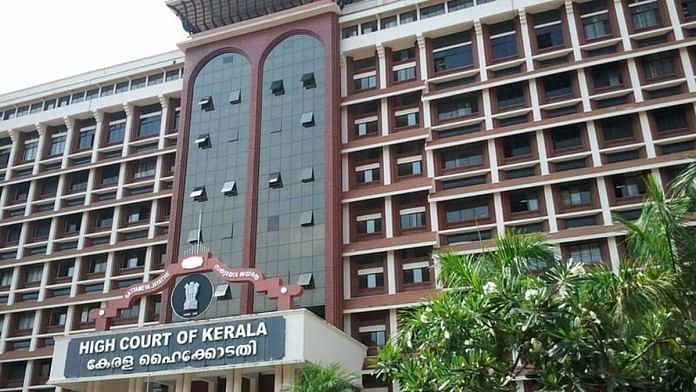New Delhi: The Covid-19 pandemic has forced many activities and experiences to shift to the virtual platform — work meetings, partying with friends, dating. And the latest to join the list is weddings.
On Wednesday, the Kerala High Court allowed a couple to solemnise their marriage virtually under the Special Marriage Act, 1954.
Rinthu Thomas, a lawyer, submitted a petition that her fiancé Anant Krishnan, who was presently in the United Kingdom, could not travel to India for their wedding — scheduled for 23 December — owing to fresh restrictions on travel following the Omicron outbreak and requested the court to allow them to solemnise their marriage virtually.
The petitioners told the court that Krishnan had also booked the air tickets for his travel, but the travel restrictions made it difficult for him to reach before the due date of the wedding. The couple also told the court that they had already fulfilled the conditions required under the Special Marriage Act.
The couple had earlier approached the state government for permission, but while the state did not oppose the plea, it had raised legal objections to the case regarding the mandatory notice period provided under the Act. The mandated period was, however, completed by the time the court order came.
The court allowed the prayer and further directed the Marriage Officer to solemnise the marriage, subject to certain conditions prescribed by the court, such as discretion to choose the virtual platform for the conduction of the ceremony and directions as to power of attorney for the parties.
A single judge bench of Justice M. Nagaresh allowed the plea, while referring to virtual solemnisation of marriage in earlier instances, and held that there was no reason for denying relief to the present petitioners.
In August 2021, the Supreme Court had allowed the registration of marriages under the Special Marriage Act through video conferencing. The apex court had directed the Marriage Officer to allow registration of the marriage, without insisting on the physical presence of the spouses.
The Bench of Justice Indira Banerjee and Justice V. Ramasubramanian, dismissing the appeal against an order of the Punjab & Haryana High Court, had asserted that the law must “facilitate marriages and not obstruct them”.
The Court had noted that the Special Marriage Act was over seven decades old, and it must adapt to the requirements of the present day. “The law has to march along with technology”, the Court had then noted.
Also read: Lawyer got ‘erotic’ in Madras HC virtual hearing. But it isn’t 1st online boo-boo in Covid era
Earlier instances of permissions by HCs
While allowing the virtual marriage of Rinthu Thomas and Anant Krishnan Wednesday, Justice Nagaresh noted that this was not the first time the High Court had recognised virtual marriage solemnisation.
In September this year, the court had explored the possibility of allowing virtual marriages under the Special Marriage Act, while deciding petitioner Dhanya Martin’s plea to allow virtual solemnisation of marriage.
It had issued directions to the central and state government to file their response on a “technological solution” within the legal framework to support such virtual solemnisation of marriage under the Act.
The marriage of the Ukraine-Kerala couple was later solemnised after consulting the Kerala government, the IT Department of the central government and the Department of Foreign Affairs.
Kerala government had also issued an order in September this year allowing online registration of marriages with permission from the Chief Registrar General of Marriages, until amendments to the Kerala Registration of Marriages Rules came into effect.
Other courts have also recognised the need to allow virtual solemnisation of marriages, especially in view of the Covid-induced restrictions.
In September, the Delhi High Court allowed an NRI couple based in the United States to register their marriage virtually under the Act. Justice Rekha Palli of the Delhi HC had noted that the apex court had already permitted such virtual marriages under the Act.
“I have read the judgement by the Supreme Court. When the matter has been settled, why is this application not being allowed by the State Government?”, the judge noted.
The Delhi High Court also observed that it had allowed virtual registration of marriages almost 14 years back, when video conferencing facility was at a nascent stage.
(Akshat Jain, a first-year student of law at NLU, Delhi, is an intern with ThePrint)
(Edited by Poulomi Banerjee)
Also read: Why Madras HC ruled ‘fundamental duty to laugh, right to be funny’ deserve to be in Constitution



